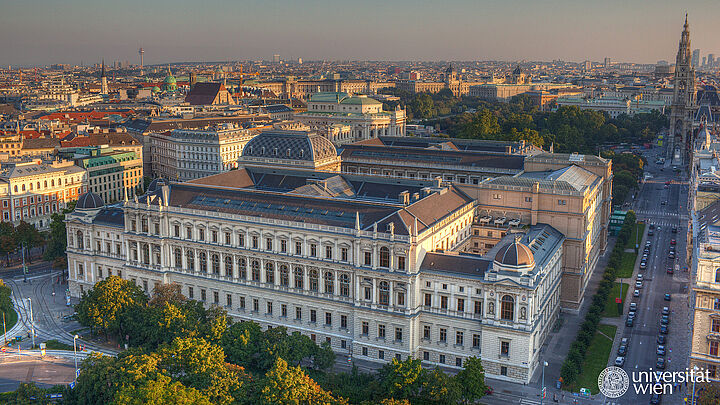Montag, 22. Oktober 2018, 16:15 - 17:15 iCal
Guest talk: Prof. Peter Schreiner, Deutschland
Institute of Organic Chemistry, Justus-Liebig University, Giessen
Tunneling Control of Chemical Reactions
Fakultät für Chemie, HS 2
Währinger Straße 42, 1090 Wien
Lecture
Chemical reactivity is traditionally understood in terms of kinetic versus thermodynamic control, wherein the driving force is the lowest activation barrier among the possible reaction paths or the lowest free energy of the final products, respectively. Here we expose quantum mechanical tunneling as a third driving force that can overwrite traditional kinetic control and govern reactivity based on non-classical penetration of the potential energy barriers connecting the reactants and products. These findings are exemplified with the first experi-mental isolation and full spectroscopic and theoretical characterization of the elusive hydroxycarbenes (R–C–OH) that undergo facile hydrogen tunneling to the corresponding aldehydes under bar-riers of nearly 30.0 kcal mol–1 with half-lives of around 1–2 h even at 10 K, despite of the presence of paths with substantially lower barriers. We will demonstrate that this is a general phenomenon, as exemplified by other OH-tunneling examples such as the rotational isomerization of a variety of carboxcylic acids. Such tunneling pro-cesses do not merely represent corrections to the reaction rate, they are the reaction rate, i.e., the completely control the reaction outcome. They can also override common notions such as the Curtin-Hammett principle. Finally, we will –for the first time– introduce a tunneling product, i.e., a product of a chemical reaction that can, from a given starting material, only form through a tunneling process as it is otherwise inaccessible kinetically or thermodynamically.
Veranstalter
Fakultät für Chemie, Institut für Organische Chemie
Kontakt
Lena Yadlapalli
Dekanat, Fakultät für Chemie
+43-1-4277-52012
lena.yadlapalli@univie.ac.at
Erstellt am Mittwoch, 19. September 2018, 14:16
Letzte Änderung am Freitag, 12. Oktober 2018, 12:28

